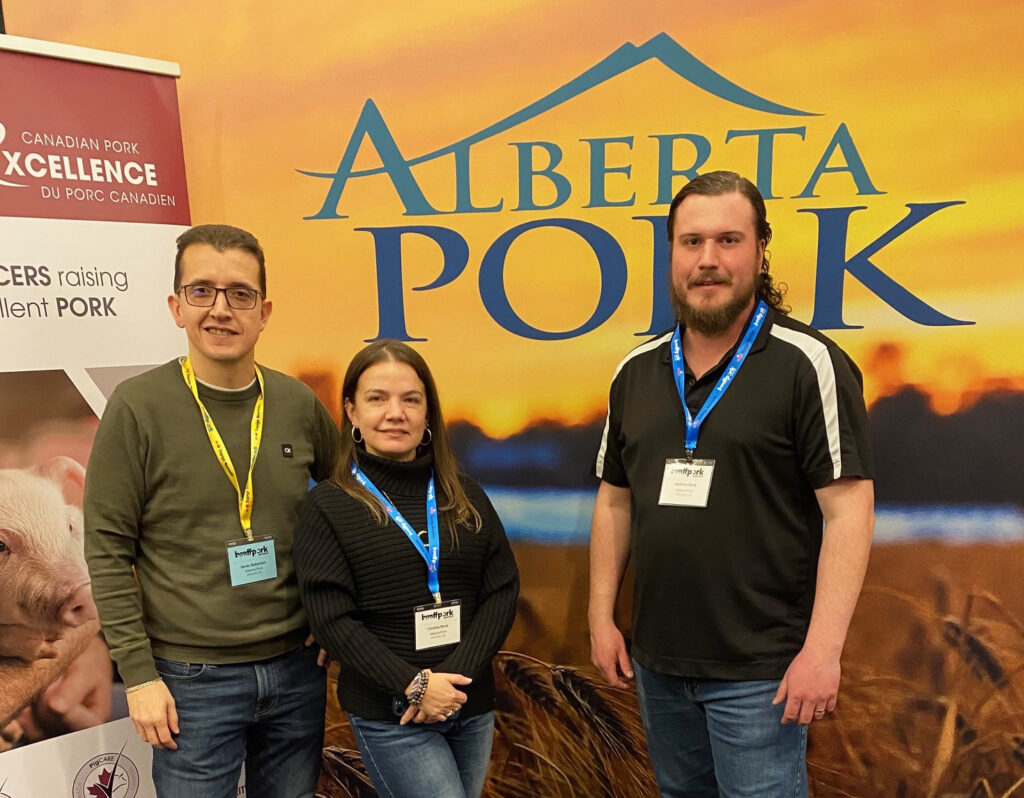
The Banff 2023 edition of the Canadian Hog Journal is here!
For the second year in a row, the Banff Pork Seminar returned in-person. This year’s seminar took place with the theme: ‘A Sustainable Pork Journey.’ By now, many people in a lot of industries reflexively roll their eyes when they hear the word, ‘sustainability.’ But, true to its definition, it has every intention of sticking around as a principle touching everything from farming and processing, to retail and restaurants. Hence, the cover photo of this edition is a dish served at the Juniper Hotel’s bistro in Banff – noted for its commitment to eco-consciousness and preserving the area’s Indigenous heritage.
Choosing that image, on my part, wasn’t without purpose. Other than being an incredible-looking and delectable-tasting dish, to me, it illustrates the line-of-sight our industry must have when it comes to everything we do. While many people in our industry may consider the connection from the farm to the table to be tenuous, Banff is one of the most pertinent examples of how wrong that notion is.
Consider where Canadian pork ends up: most of it goes to Asia. Walking through the streets of downtown Banff, guests at the seminar may have noticed Japanese script on storefront windows and signs indicating shops carrying everyday cultural staples, such as instant noodles. Those are not random observations but should suggest something about the origins of the tourists who visit our country to spend money. These same tourists buy our pork at home, in their own countries. Tourists, just like guests at the seminar, frequent Banff’s businesses, including restaurants. The one I chose to highlight was singled out for its additional values that align with this year’s theme for the seminar and encourage positive public perception – something that continues to be desperately needed in animal agriculture.
With that in mind, there is a skewed side of sustainability, and it is sustainability that compromises the product – the pig, which becomes pork. While society undoubtedly expects our industry to fall in line with sustainable practices, if these practices result in worse-performing pigs or pork that is lower-quality or less food-safe, the sector will have lost the plot, and society will have lost an affordable, delicious, nutritious source of sustenance. At that point, sustainability may be counter-intuitive. On top of that is also the issue of financial gain – the ‘brass tacks’ of why producers are able to raise pigs, why packers are able to slaughter them, and why end-users are able to sell pork to customers. If sustainability, in that sense, amounts to widespread consumer buy-in, then it all has a round-about way of being justified. But if that financial element is overlooked, everyone loses.
Writers are seldom the most knowledgeable people in the room, but yet, we’re the most inclined to open our proverbial mouths by publishing our words. Case in point: the photo on this page shows me, at right, with Alberta Pork’s Production Team, Javier Bahamon and Cris Neva, at left and centre – two very astute individuals with an invaluable dedication to this industry that many of you share.
With that considered, let me know what you think about this edition by emailing andrew.heck@albertapork.com. I would also encourage you to participate on social media and ‘follow’ the Canadian Hog Journal on Facebook and Twitter (@HogJournal).




